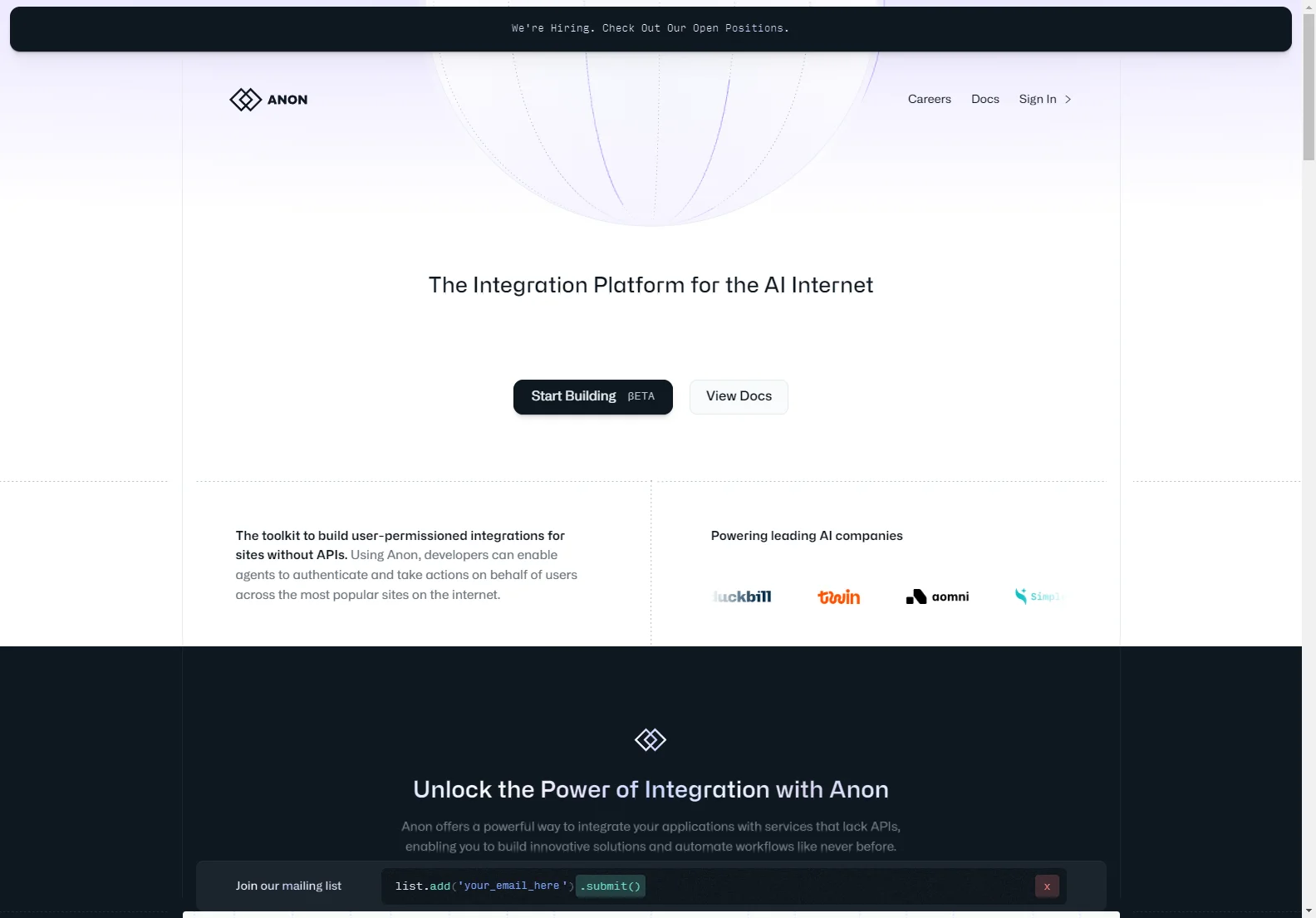Anon: The Integration Platform for the AI Internet
Anon is revolutionizing how AI interacts with the internet. It's a powerful integration platform that empowers developers to build user-permissioned integrations for websites lacking APIs. This opens up a world of possibilities for AI agents to interact with various online services securely and efficiently.
Key Features
- Wide Range of Integrations: Anon supports a vast and growing library of integrations across various sectors, including airlines, e-commerce, messaging, ridesharing, social media, restaurants, and logistics. New integrations are constantly being added.
- Granular Session Control: The platform provides robust tools for managing user sessions, ensuring security and reliability. Developers can authenticate users and control their actions with precision.
- Built for AI Agents: Anon is specifically designed for AI agents, virtual assistants, digital clones, RPA software, and other AI-powered applications. It simplifies the complexities of integration, allowing developers to focus on building innovative solutions.
- Cross-Platform Support: Anon works seamlessly across multiple platforms, including mobile, web, and desktop interfaces, ensuring broad compatibility.
- Security-First Approach: User privacy and security are paramount. Anon employs a zero-trust architecture, never directly accessing or sharing user credentials.
Use Cases
Anon's applications are diverse and far-reaching:
- Enterprise Automation: Streamline tasks across sales, marketing, and recruiting. Automate prospecting, accelerate sales pipelines, and enhance marketing campaigns.
- Data Actionability: Automate research, analysis, and profiling, transforming raw data into actionable insights.
- Social Media Automation: Access and leverage social media data to build powerful automations based on user profiles.
- Everyday Task Automation: Automate everyday chores, such as booking flights, making reservations, or online shopping.
How Anon Works
Anon's architecture enables AI agents to authenticate and perform actions on behalf of users. It handles the complexities of authentication, authorization, and session management, allowing developers to focus on the core functionality of their AI applications. The platform's SDK provides a simple and intuitive interface for developers to integrate Anon into their projects.
Comparisons
While other platforms offer integration capabilities, Anon distinguishes itself through its focus on user-permissioned integrations, robust security measures, and extensive support for AI agents. It addresses a critical gap in the current AI landscape by providing a secure and reliable way for AI to interact with the internet.
Conclusion
Anon is a game-changing platform that is shaping the future of AI. By providing a secure and scalable infrastructure for user-permissioned integrations, Anon empowers developers to build innovative AI applications that seamlessly interact with the online world. Its focus on security and user control makes it a vital component of the evolving AI ecosystem.

